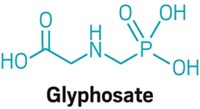Advertisement
Grab your lab coat. Let's get started
Welcome!
Welcome!
Create an account below to get 6 C&EN articles per month, receive newsletters and more - all free.
It seems this is your first time logging in online. Please enter the following information to continue.
As an ACS member you automatically get access to this site. All we need is few more details to create your reading experience.
Not you? Sign in with a different account.
Not you? Sign in with a different account.
ERROR 1
ERROR 1
ERROR 2
ERROR 2
ERROR 2
ERROR 2
ERROR 2
Password and Confirm password must match.
If you have an ACS member number, please enter it here so we can link this account to your membership. (optional)
ERROR 2
ACS values your privacy. By submitting your information, you are gaining access to C&EN and subscribing to our weekly newsletter. We use the information you provide to make your reading experience better, and we will never sell your data to third party members.
Environment
Who Remembers Rachel Carson?
September 24, 2007
| A version of this story appeared in
Volume 85, Issue 39
Reading Rudy Baum's editorial on Rachel Carson (C&EN, June 4, page 5) immediately reminded me of my postdoctoral stay at the Polytechnicum in Stockholm, where I read "Silent Spring" in 1962. The editorial provided me with both an adequate retrospective and a stimulating introduction to a meeting I recently attended in Montpellier, France, on sustainable development.
Surprisingly, nobody in the introductory session mentioned Carson's contribution as the precursor for the environmental movement. Instead, Gro Harlem Brundtland, Norway's former prime minister, was often mentioned. In 1987, as acting president of UNESCO's World Commission on Environment & Development, she simply gave—25 years after "Silent Spring"—a definition and a context for sustainable development! Who nowadays in Europe still remembers Rachel Carson?
In Montpellier, the discussions focused instead on the long-debated chemicals regulation program REACH—Regulation, Evaluation & Authorization of Chemicals. After more than five years of tough discussions among ecologists, representatives from administrations, and industries in Europe, a compromise on the use of chemicals was achieved for the sake of the European workers and citizens but to the detriment of the competitiveness of the European economy.
Isn't REACH a kind of answer to Rachel Carson's "Silent Spring"? REACH took effect on June 1, just five days after the 100th anniversary of Carson's birth. Who nowadays in the U.S. even knows about REACH?
It took 45 years for the cry of an American marine biologist to be heard. A practical attempt to stop the misuse and abuse of toxic chemicals has been proposed, but at the European level only. When will industries from other continents, and particularly the U.S., join this legislation?
Of course, it isn't a model. But it tries at least to propose an answer to the controversy raised in the U.S. Senate and reported in Rudy Baum's editorial about the effect of the banning of DDT. Within REACH, the banning of a toxic substance will be effective only if a viable substitute is really available.
Gilbert Schorsch
Paris




Join the conversation
Contact the reporter
Submit a Letter to the Editor for publication
Engage with us on Twitter